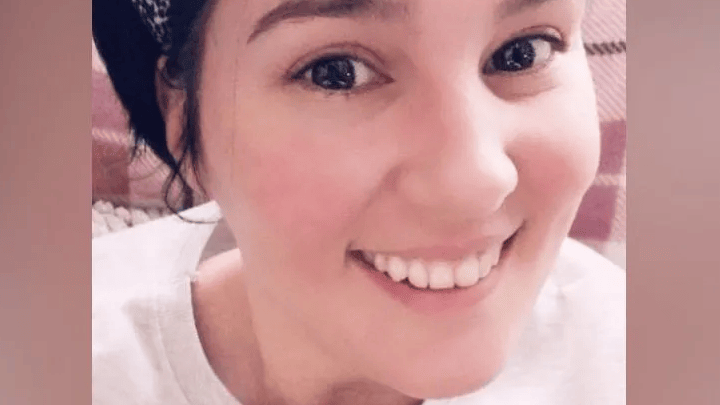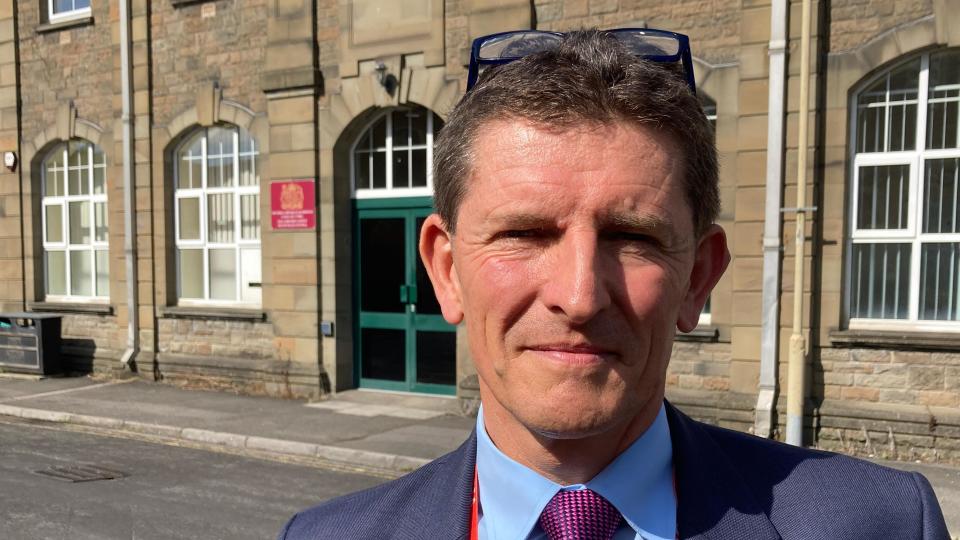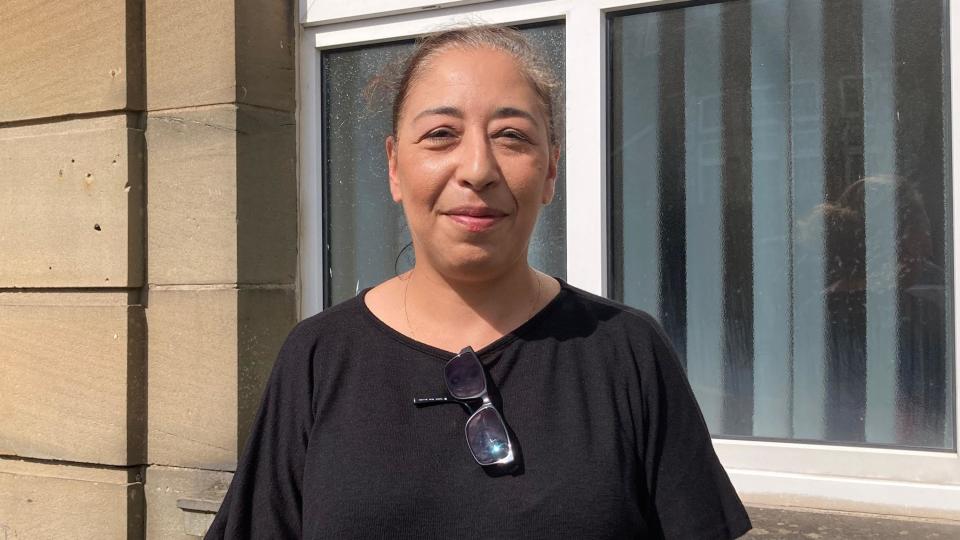Lessons after killings not learned, say family

The son-in-law of an 88-year-old man who was killed by a woman with schizophrenia at a supermarket says too many people are being harmed due to a lack of proper risk assessments of mental health patients.
Zara Radcliffe killed John Rees and injured three other people at the Co-op store in Penygraig, Rhondda Cynon Taf, in May 2020.
An inquest found there were “missed opportunities” to assess her mental health leading up to the attack, with her later telling police: “I knew I would kill someone today.”
Patrick Houston said there was "little sign" that mental health services were learning from similar situations, which happened "all too often".
Mr Houston said the family were "not surprised" that Mr Rees had "done the right thing", but more had to be done to prevent others being killed.
"The cost of effective care for these patients may be high, but those with responsibility in this area should bear in mind that the cost to the many people affected by such cases is immeasurably higher," he said.
Coroner Graeme Hughes recorded a narrative verdict, and said Mr Rees was “unlawfully killed” by Radcliffe, who was 30 when she was detained under a hospital order for the attack five months later.
He found the way the community mental health team - made up of Rhondda Cynon Taf social workers and medical staff from Cwm Taf Morgannwg health board - monitored Radcliffe after she was released from hospital was “insufficient”.
Ayette Bounouri, who tried to drag Mr Rees to safety, said she will be traumatised for the rest of her life.
Mrs Bounouri used a shopping basket in an effort to disarm Radcliffe.
Radcliffe used wine bottles and a fire extinguisher to assault Mr Rees, another man and two women. Mr Rees was killed when he tried to stop Radcliffe.
Mrs Bounouri, who was awarded the Queen's Gallantry Medal for bravery for her actions, said: "We are grateful for his sacrifice but we live with the pain of his loss."
She added: "I have learned to live with the trauma, but I am aware that it's going to be with me for the rest of my life.
"What happened was tragic, unnecessary and traumatic."
Speaking after Mr Rees's inquest, Mrs Bounouri said he was a "true gentleman" who was loved by the community.

The coroner found a planned phone call with Radcliffe on 30 April did not happen and that, if it had, it was “more likely than not” that Radcliffe’s care co-ordinator would have become aware she not been staying at home or taking her medication.
He added that their failure to complete an updated risk assessment when she was in the community probably further contributed to Mr Rees's death and was another "missed opportunity".
Recording a narrative verdict at the court in Pontypridd, the coroner found that Mr Rees was "unlawfully killed” and that the “assailant was suffering from psychosis and symptoms were not being managed".
The four-day inquest heard that Radcliffe's father Wayne had raised concerns about her on the day of the attack.
He made multiple phone calls to the crisis mental health team, telling them she had started taking recreational drugs again.
He said his daughter had become "withdrawn and agitated". No one called him back, but a care coordinator did make plans to visit the home later that day.
At about 14:00 BST, Radcliffe made her way to the supermarket and used wine bottles and a fire extinguisher to attack her four victims.
She later told police: “I knew I would kill someone today.”
Radcliffe was then sent to Rampton high security hospital and, in October 2020, detained indefinitely. She admitted manslaughter on the basis of diminished responsibilit and the attempted murder of three others.
The inquest was told Radcliffe had previously assaulted a police officer and medical staff.

Some of the team who treated her during a four-month inpatient stay at the Royal Glamorgan Hospital gave evidence, outlining a diagnosis of schizophrenia with symptoms including aggression and volatility and hearing voices which she believed would harm her.
The court heard that, after two weeks of consistently taking an antipsychotic drug, they believed she was improving and that at discharge on 24 February 2020, was considered a low risk.
Her care was handed over to the community mental health team but she had only two interactions with them in the next ten weeks, in part due to Covid restrictions.
Paul Mears, chief executive of Cwm Taf Morgannwg UHB, said the health board had learned from the case, establishing an adult mental health inpatient improvement board "to ensure we continually focus on the delivery of high quality, safe and effective care to the service users and carers in contact with our mental health inpatient services".
He added that a recent review of inpatient mental health services at the Royal Glamorgan "acknowledged the significant improvements".
Rhondda Cynon Taf council apologised to Mr Rees's family and everyone else affected, and said it "will now work with its partners to review the conclusion and address any areas for improvement identified in the verdict".


